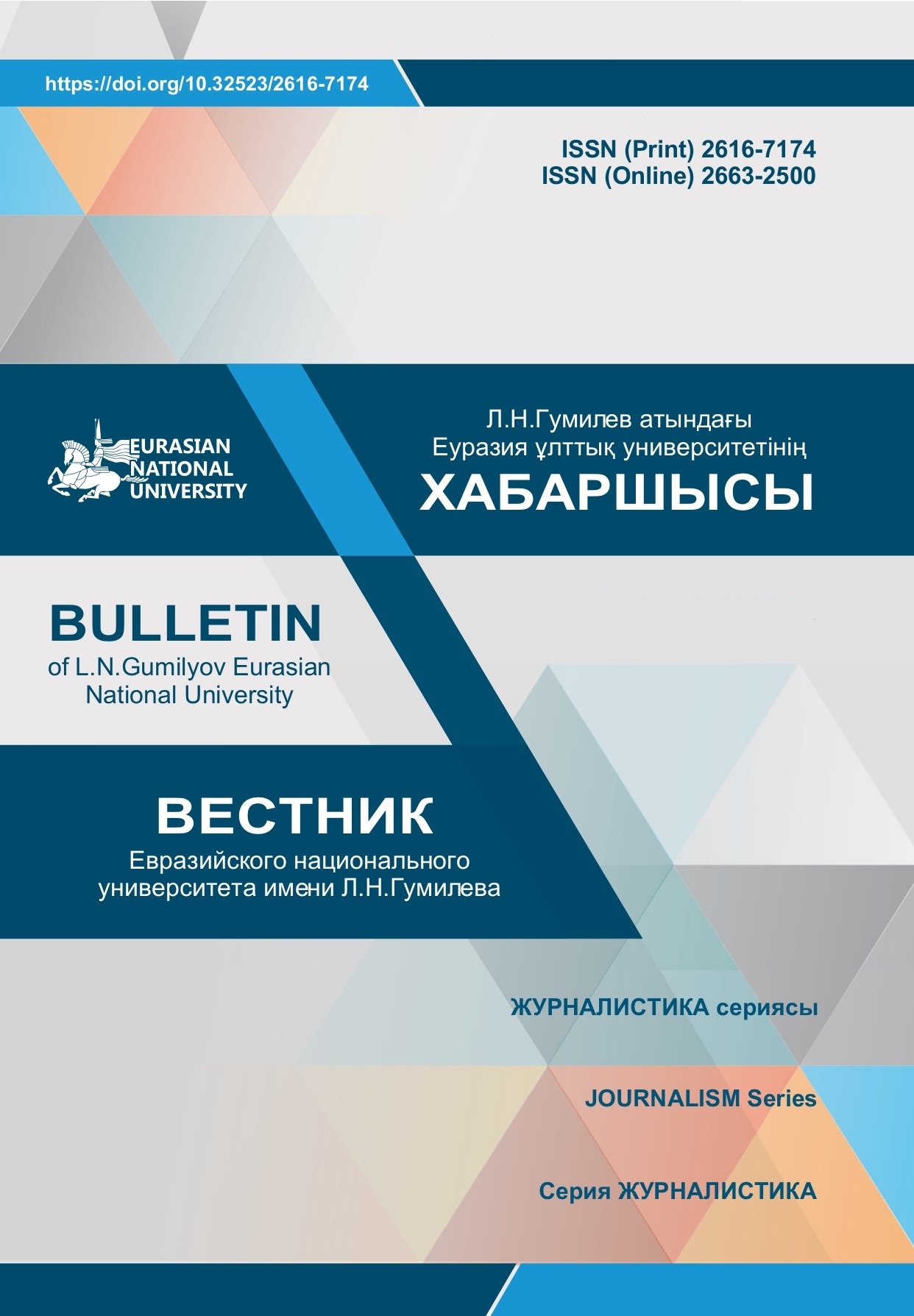Hybrid technologies of information delivery in the Internet space of Kazakhstan: synergy and contradictions
Hybrid technologies of information delivery in the Internet space of Kazakhstan: synergy and contradictions
Views: 172 / PDF downloads: 136
DOI:
https://doi.org/10.32523/2616-7174-2025-151-2-134-144Keywords:
hybrid media, network media, journalistic materials, data journalism, fact-checking, information policyAbstract
The evolution of the media resulted in the formation of a network society, a social structure that is based on networks controlled by information and communication technologies, which makes it possible to concentrate, process and transmit information through network systems. This is accompanied not only by the transformation of communication formats, but also by the metamorphoses of the life of all humanity. Thus, new forms of interaction between subjects in society arise. Thanks to the development of online media and social networks, alternative media, such as citizen journalism, are being established, the system and understanding of public priorities and human values are being transformed. The development of the Internet has led to a synthesis of various genres, formats and methods in journalism, and the general functioning of all possible types of information presentation. Now we listen to the news, read information or view infographics in a visual format, not waiting for morning or evening news broadcasts, but synchronously consuming information that is delivered using the latest multimedia resources or Internet resources. The content, character, and form of embodiment of information have changed, and traditional text forms have been transformed. The goal led to the use of such methods as comparative analysis, systemic and structural-semiotic approaches, content and discourse analysis, as well as expert surveys. The article examines social networks as a manifestation of hybrid technologies, their features and role in society. Changes in the composition of journalistic genres and in their structure are identified. Hybrid information technologies are studied as an effective communicative resource of civil society, as well as from the point of view of their positive or negative impact on processes in society.


